Sound economic and institutional foundations for Europe
Video playlist
Press reviews
Axel Weber warnt vor Aktionismus NZZ vom 17.11.2014 lesen
Unsere Lehrbücher sind falsch NZZ vom 17.11.2014 lesen
Goldinitiative ist 'bizarre, just bizarre and very dangerous' Tagesanzeiger vom 17.11.2014 n.a.
Japan wird seine Schulden niemals zurückzahlen Finanz und Wirtschaft vom 21.11.2014 lesen
Ein radikales Endspiel Berner Zeitung Blog vom 28.11.2014 lesen
Insight
On November 17, 2014, the UBS Center gathered a prestigious set of international speakers at its annual Forum for Economic Dialogue. Ernst Fehr once more welcomed over 500 guests at the Kaufleuten in Zurich. Leading international figures from science, business, and politics discussed why large parts of the world are still waiting for a return to stable economic growth and a reduction in unemployment and debt levels six years after the outbreak of the financial crisis.
Read our full Insight on Sound economic and institutional foundations for Europe by Maura Wyler, Head of Communication.
On November 17, 2014, the UBS Center gathered a prestigious set of international speakers at its annual Forum for Economic Dialogue. Ernst Fehr once more welcomed over 500 guests at the Kaufleuten in Zurich. Leading international figures from science, business, and politics discussed why large parts of the world are still waiting for a return to stable economic growth and a reduction in unemployment and debt levels six years after the outbreak of the financial crisis.
Read our full Insight on Sound economic and institutional foundations for Europe by Maura Wyler, Head of Communication.
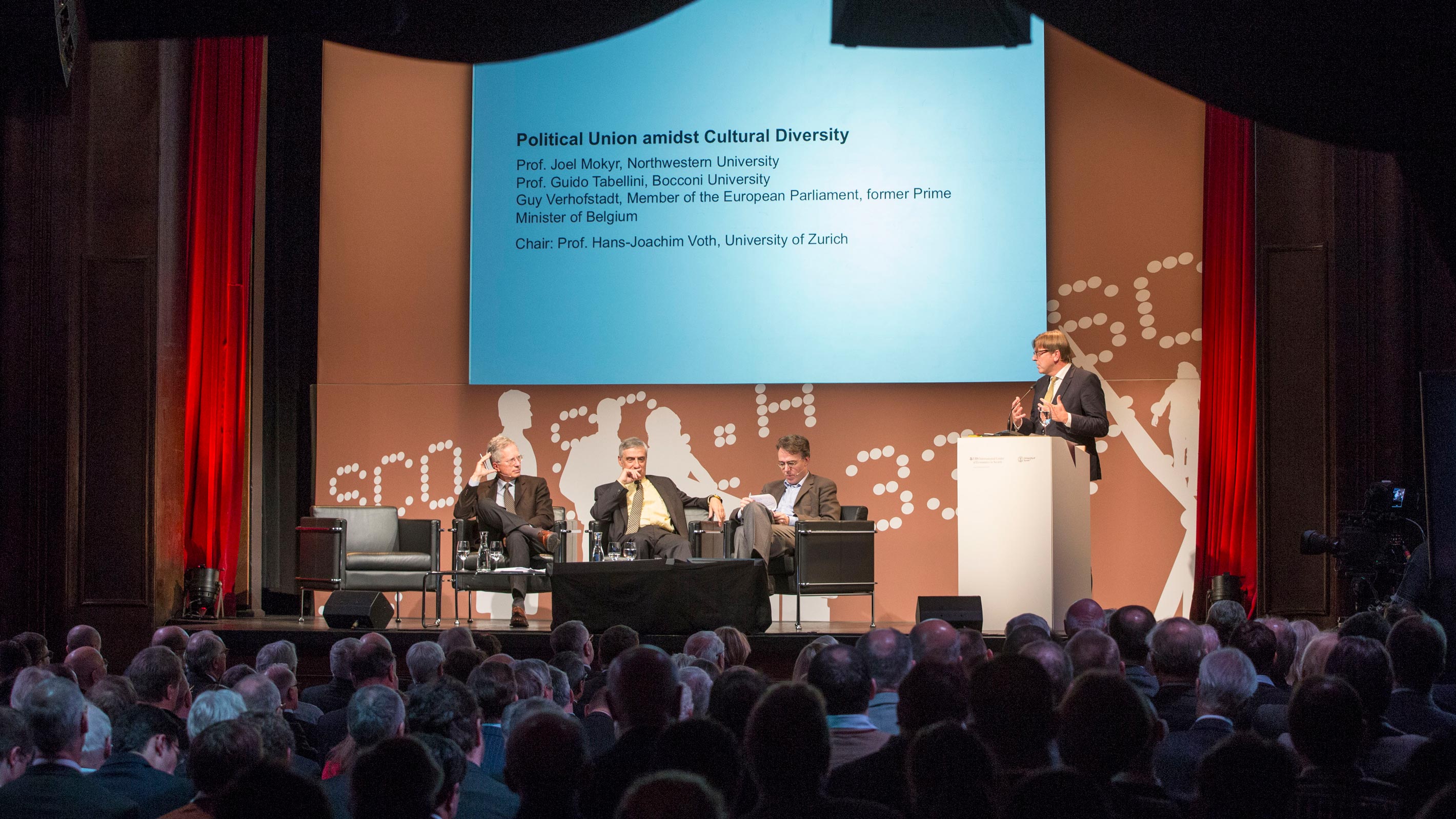
Intro
Six years after the outbreak of the financial crisis, large parts of the world are still waiting for a return to stable economic growth and for a reduction in unemployment and debt levels. In Europe, the recovery is particularly slow and fraught with regular setbacks, endangering the political and social stability in some countries and provoking calls for yet more unconventional policy measures.
Amidst this fight against low growth, high unemployment, and low inflation, it appears paramount to start looking beyond short-term solutions at how Europe could be put back on a sound economic and institutional foundation needed for its successful future.
At the Forum for Economic Dialogue 2014 entitled "Sound Economic and Institutional Foundations for Europe", leading international figures from science, business, and politics presented and assessed potential options for this and entered into open discussions with the audience.
The program had three main sessions:
- Towards a stable financial pact
- Political union amidst cultural diversity
- To keep or not to keep the Euro
The event started with a keynote lecture by Lord Adair Turner (United Kingdom House of Lords) and concluded with the Zurich Lecture of Economics in Society delivered by Prof. Alberto Alesina (Harvard University).
Further speakers included Richard Portes (London Business School, EUI, and CEPR), Hans-Werner Sinn (LMU Munich), Guy Verhofstadt (European Parliament), Axel Weber (UBS), George Alogoskoufis (Athens), and many more.
Six years after the outbreak of the financial crisis, large parts of the world are still waiting for a return to stable economic growth and for a reduction in unemployment and debt levels. In Europe, the recovery is particularly slow and fraught with regular setbacks, endangering the political and social stability in some countries and provoking calls for yet more unconventional policy measures.
Amidst this fight against low growth, high unemployment, and low inflation, it appears paramount to start looking beyond short-term solutions at how Europe could be put back on a sound economic and institutional foundation needed for its successful future.
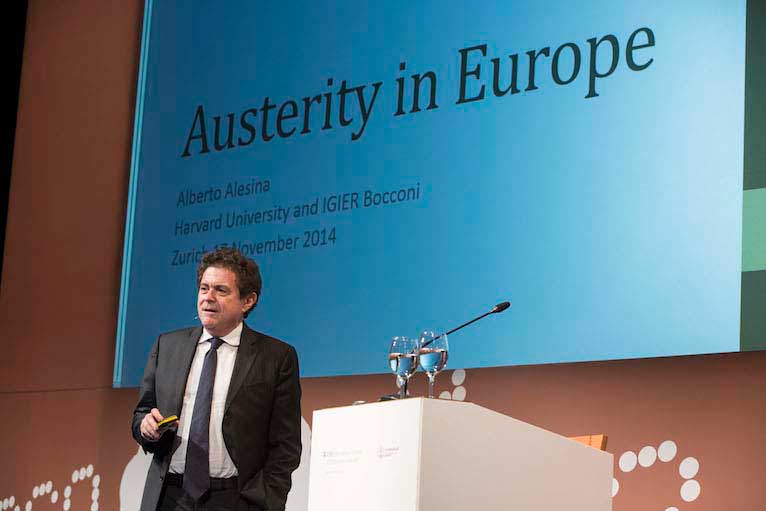
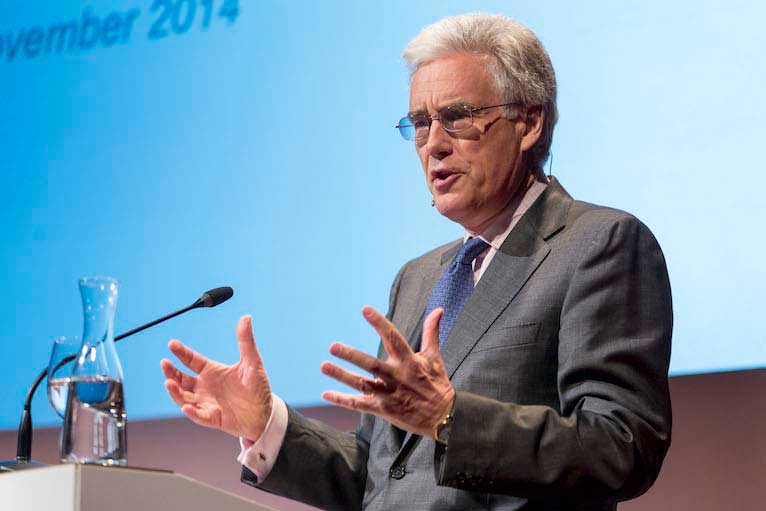
Photo gallery
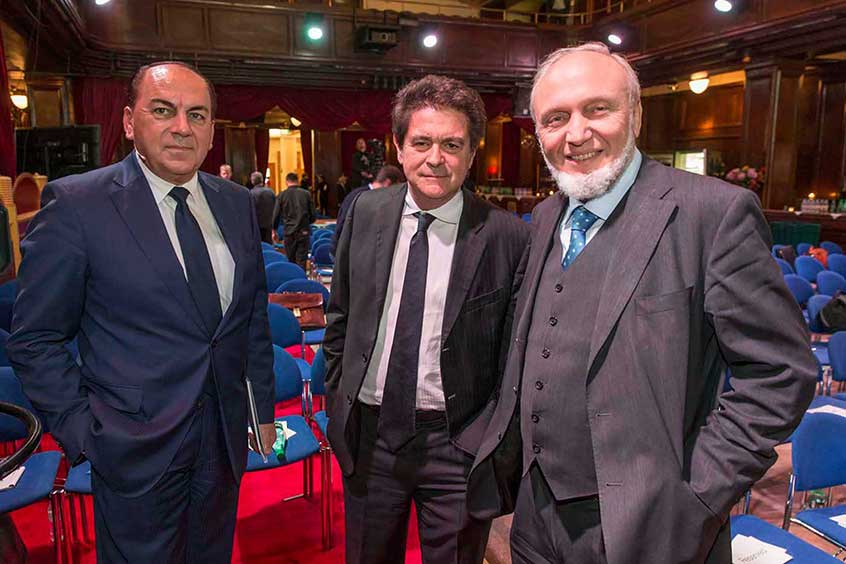
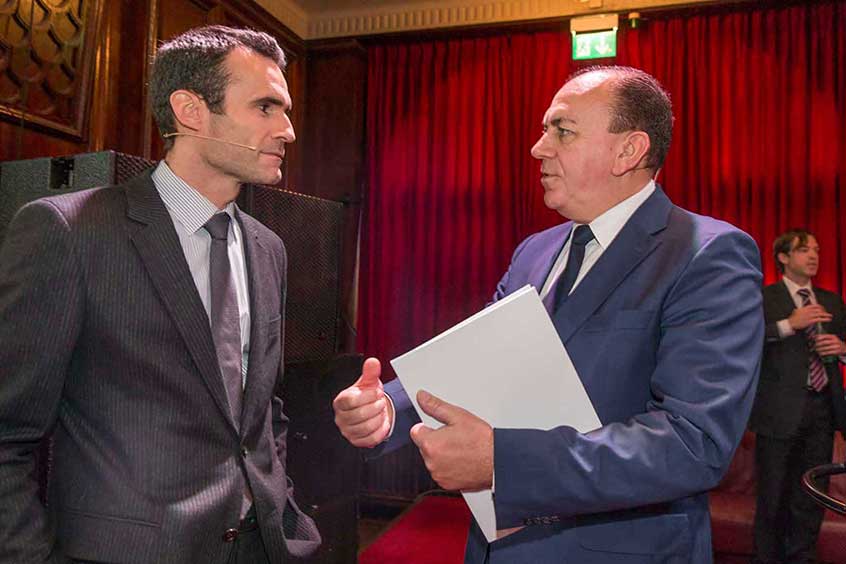
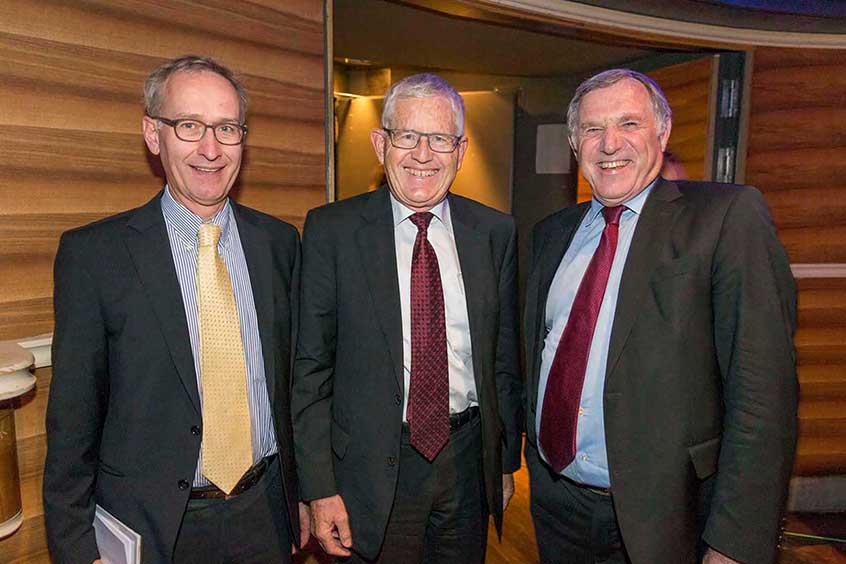
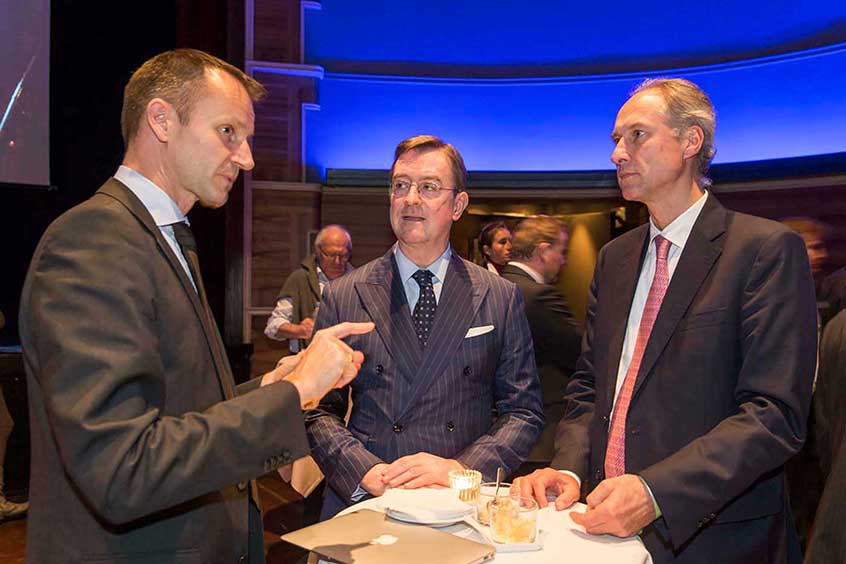
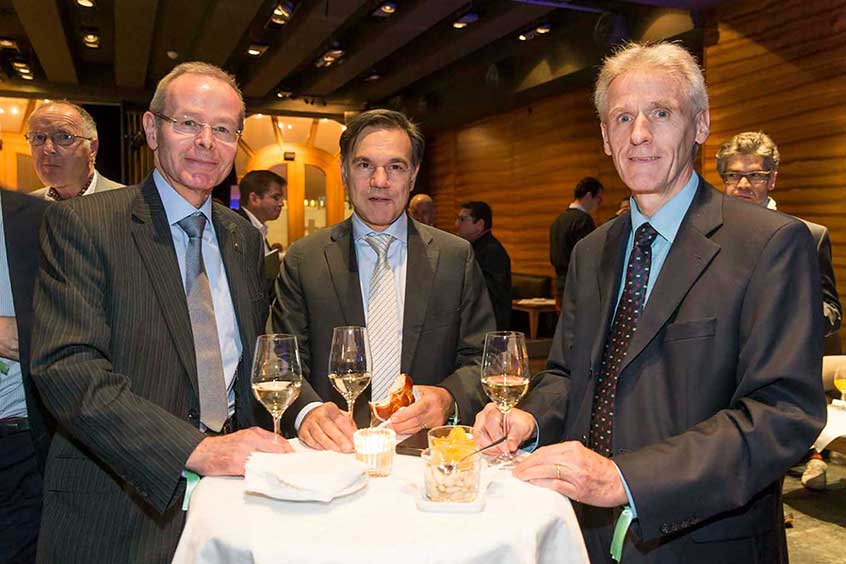
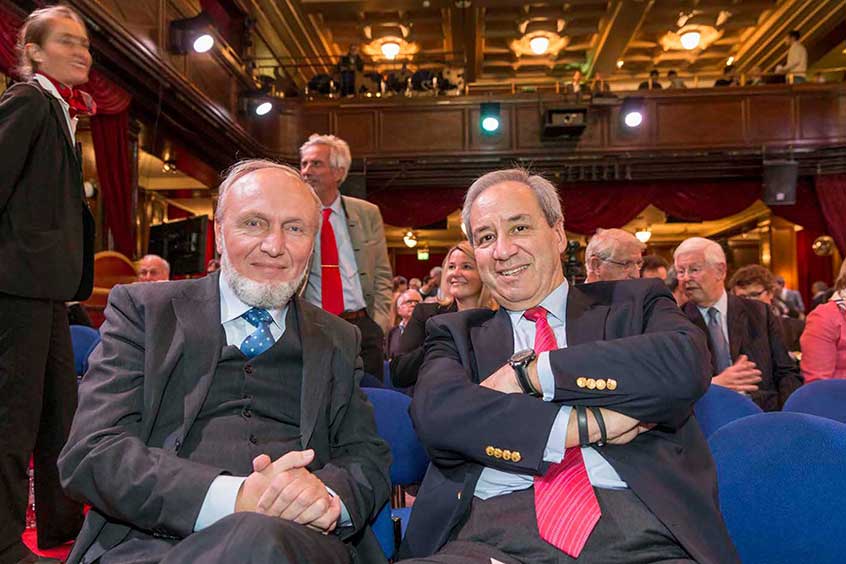
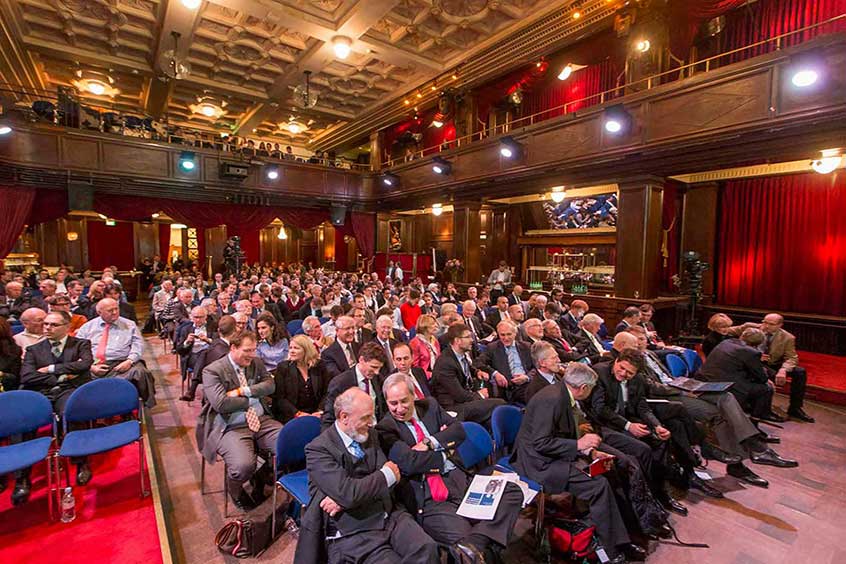
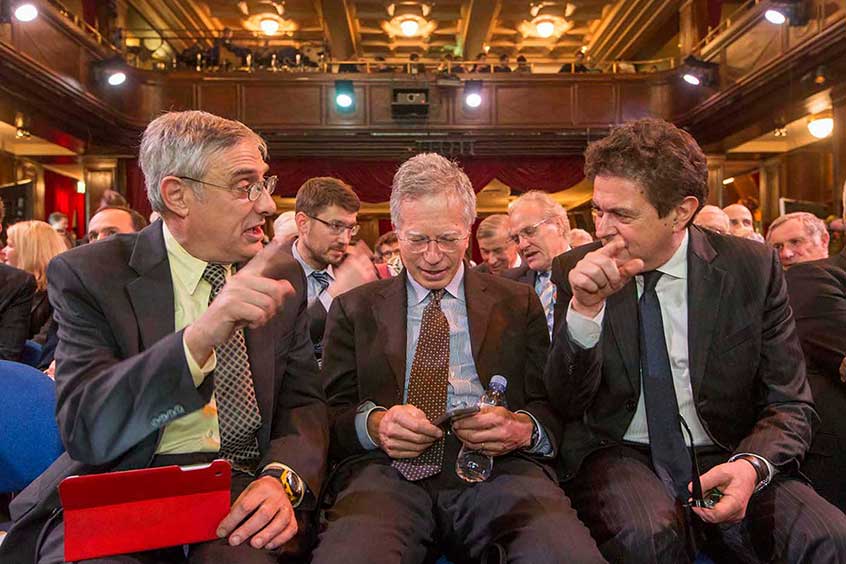
Program
Speakers
Alesina was a leader in the field of Political Economics and has published extensively in all major academic journals in economics. His work has covered a variety of topics: the political economy of fiscal policy and budget deficits, the process of European integration, stabilization policies in high inflation countries, currency unions, the political economic determinants of redistributive policies, and the differences in the welfare state in the US and Europe.
George Alogoskoufis is a Professor of Economics at the Athens University of Economics and Business. He was a member of the Hellenic Parliament from September 1996 to October 2009 and served as Greece’s Minister of Economy and Finance from March 2004 until January 2009. Alogoskoufis has served as consultant to a number of international institutions, including the European Commission and the World Bank and was elected to the Council of the European Economic Association (1994-1998).
His research focuses on unemployment, inflation, exchange rates, economic growth and monetary and fiscal policy.
Ernst Fehr received his doctorate from the University of Vienna in 1986. His work has shown how social motives shape the cooperation, negotiations and coordination among actors and how this affects the functioning of incentives, markets and organisations. His work identifies important conditions under which cooperation flourishes and breaks down. The work on the psychological foundations of incentives informs us about the merits and the limits of financial incentives for the compensation of employees. In other work he has shown the importance of corporate culture for the performance of firms. In more recent work he shows how social motives affect how people vote on issues related to the redistribution of incomes and how differences in people’s intrinsic patience is related to wealth inequality. His work has found large resonance inside and outside academia with more than 100’000 Google Scholar citations and his work has been mentioned many times in international and national newspapers.
Joel Mokyr is Robert H. Strotz Professor of Arts and Sciences and Professor of Economics and History at Northwestern University. His research focuses on the economic history of Europe, specializing in the period 1750–1914. His current research is concerned with the understanding of the economic and intellectual roots of technological progress and the growth of useful knowledge in European societies, as well as the impact that industrialization and economic progress have had on economic welfare. Prof. Mokyr is co-editor of a book series, the Princeton University Press Economic History of the Western World. He was the 2006 winner of the biennial Heineken Award for History offered by the Royal Dutch Academy of Sciences and the winner of the 2015 Balzan International Prize for economic history. He was elected a distinguished member of the American Economic Association. He is a member of the American Academy of Arts and Sciences, the British Academy, the Accademia dei Lincei and Royal Dutch Academy. His book A Culture of Growth – Origins of the Modern Economy, was published in 2016. The Economist praised Mokyr’s book, saying, “It is refreshing that an economist is taking seriously the idea that ideas and culture make a difference to economic growth.” His most recent book is Two Paths to the Twentieth Century: Culture and Institutions in Europe and China, 1000–2000, with Avner Greif and Guido Tabellini, forthcoming with Princeton University Press.
Thomas Philippon is Professor of Finance at the Stern School of Business, New York University. He was on leave during the academic year 2012-2013, working as senior economic advisor to the French finance minister.
Philippon won the 2013 Bernácer Prize for Best European Economist under 40. His research interests include macroeconomics, corporate finance, business cycles, corporate governance, earnings management, and unemployment.
Richard Portes, Professor of Economics at London Business School is Founder and President of the Centre for Economic Policy Research (CEPR), Tommaso Padoa Schioppa Professor at the European University Institute, and Co-Chairman of the Board of Economic Policy.
His current research interests include international macroeconomics, international finance, credit default swap (CDS) markets, the global and European financial crises, and financial regulation. He has written extensively on international currencies, financial stability, globalization, sovereign borrowing and debt, European monetary issues, European financial markets, international capital flows, centrally planned economies and transition, macroeconomic disequilibrium, and European integration.
Hans-Werner Sinn is Professor of Economics and Public Finance at the University of Munich (LMU), President of the Ifo Institute, Director of the University of Munich’s Center for Economic Studies and Director of CESifo. He is a member of the Council of Economic Advisors to the German Ministry of Economics as well as former president of the International Institute of Public Finance (IIPF). Sinn is author of more than 20 monographs and 135 scientific articles.
Sinn’s main areas of research cover the topics of taxes, regulation, the labor market, the environment, growth and exhaustible resources, foreign trade, banks, insurance and risk, climate and energy, demography and social insurance, macroeconomics, system competition and system transformation.
Guido Tabellini is a Professor of Economics at Bocconi University, where he was rector from 2008 to 2012. Since July 2013 Tabellini holds the Intesa Sanpaolo Chair in Political Economics. Before returning to Europe, he taught at Stanford and UCLA. He is a foreign honorary member of the American Academy of Arts and Sciences, a fellow of the Econometric Society, a fellow of the Canadian Institute for Advanced Research, and a recipient of the 2001 Yrjö Jahnsson Award. In 2007 he was President of the European Economic Association. Guido Tabellini is one of the world’s leading researchers in political and cultural economics. Much of his recent research has focused on culture in Europe.
Lord Adair Turner is a world-renowned expert on global economic trends, global finance, macro prudential regulation and the Chinese financial system. Since 2013 he has served as Senior Fellow at the Institute for New Economic Thinking, a new think tank founded by George Soros dedicated to re-thinking the field of economics in the wake of the financial crisis.
Lord Turner served as Chairman of the Financial Services Authority (FSA) from 2008 until March 2013. He successfully rebuilt the institution’s reputation after the financial crisis and negotiated changes to the regulatory regime. Under his leadership, the FSA produced an influential report in 2009 (the Turner Review) recommending a rethink of global banking regulation in response to the credit crunch and collapse of global banking liquidity.
He has also been Chairman of the Overseas Development Institute and a Visiting Professor at the London School of Economics and Cass Business School, City University. He became a cross-bench member of the House of Lords in 2005.
Lord Turner has written two books, "Just Capital – The Liberal Economy" (Macmillan, 2001) and "Economics after the Crisis – Objectives and Means" (MIT Press, 2012). He is currently writing a third, due for publication in 2015, on the subject of reforming the global financial system after the crisis.
"Guy Verhofstadt has held a number of high profile posts including Political Secretary to Willy De Clercq, National President of the Party for Freedom and Progress (PVV), an MP in the House of Representatives, Deputy Prime Minister and Minister for the Budget, a Senator, and National President of the PVV and National President of the Flemish Liberals and Democrats (VLD). In July 1999, he became Prime Minister of Belgium, heading three separate governments over the course of nearly ten years. In June 2009, Guy Verhofstadt was elected to the European Parliament. Guy has written a number of books including, \"The United States of Europe\"(2006), \"The New Age of Empires\" (2008) and \"Emerging from the Crisis: How Europe Can Save the World\" (2009)."
Axel A. Weber has been Chairman of UBS since May 2012. From 2004 to 2011, he was president of the German Bundesbank, during which time he also served as a member of the Governing Council of the European Central Bank, as a member of the Board of Directors of the Bank for International Settlements, as German governor of the International Monetary Fund, and as a member of the G7 and G20 Ministers and Governors.
From 2010 to 2011, Axel Weber was a member of the Steering Committee of the Financial Stability Board and in 2011 member of the Steering Committee of the European Systemic Risk Board. He is also a board member of the Institute of International Finance and a member of the Group of Thirty.
Fabrizio Zilibotti is the Tuntex Professor of International and Development Economics at Yale University. He was Professor of Macroeconomics and Political Economy at the Department of Economics at the University of Zurich and both Scientific Director and Deputy Director of the UBS International Center of Economics in Society. He is the President of the European Economic Association and co-editor at Econometrica. His research interests include economic growth and development, political economy, macro-economics, financial economics, and the Chinese economy.
Alesina was a leader in the field of Political Economics and has published extensively in all major academic journals in economics. His work has covered a variety of topics: the political economy of fiscal policy and budget deficits, the process of European integration, stabilization policies in high inflation countries, currency unions, the political economic determinants of redistributive policies, and the differences in the welfare state in the US and Europe.
George Alogoskoufis is a Professor of Economics at the Athens University of Economics and Business. He was a member of the Hellenic Parliament from September 1996 to October 2009 and served as Greece’s Minister of Economy and Finance from March 2004 until January 2009. Alogoskoufis has served as consultant to a number of international institutions, including the European Commission and the World Bank and was elected to the Council of the European Economic Association (1994-1998).
His research focuses on unemployment, inflation, exchange rates, economic growth and monetary and fiscal policy.
Ernst Fehr received his doctorate from the University of Vienna in 1986. His work has shown how social motives shape the cooperation, negotiations and coordination among actors and how this affects the functioning of incentives, markets and organisations. His work identifies important conditions under which cooperation flourishes and breaks down. The work on the psychological foundations of incentives informs us about the merits and the limits of financial incentives for the compensation of employees. In other work he has shown the importance of corporate culture for the performance of firms. In more recent work he shows how social motives affect how people vote on issues related to the redistribution of incomes and how differences in people’s intrinsic patience is related to wealth inequality. His work has found large resonance inside and outside academia with more than 100’000 Google Scholar citations and his work has been mentioned many times in international and national newspapers.
Joel Mokyr is Robert H. Strotz Professor of Arts and Sciences and Professor of Economics and History at Northwestern University. His research focuses on the economic history of Europe, specializing in the period 1750–1914. His current research is concerned with the understanding of the economic and intellectual roots of technological progress and the growth of useful knowledge in European societies, as well as the impact that industrialization and economic progress have had on economic welfare. Prof. Mokyr is co-editor of a book series, the Princeton University Press Economic History of the Western World. He was the 2006 winner of the biennial Heineken Award for History offered by the Royal Dutch Academy of Sciences and the winner of the 2015 Balzan International Prize for economic history. He was elected a distinguished member of the American Economic Association. He is a member of the American Academy of Arts and Sciences, the British Academy, the Accademia dei Lincei and Royal Dutch Academy. His book A Culture of Growth – Origins of the Modern Economy, was published in 2016. The Economist praised Mokyr’s book, saying, “It is refreshing that an economist is taking seriously the idea that ideas and culture make a difference to economic growth.” His most recent book is Two Paths to the Twentieth Century: Culture and Institutions in Europe and China, 1000–2000, with Avner Greif and Guido Tabellini, forthcoming with Princeton University Press.